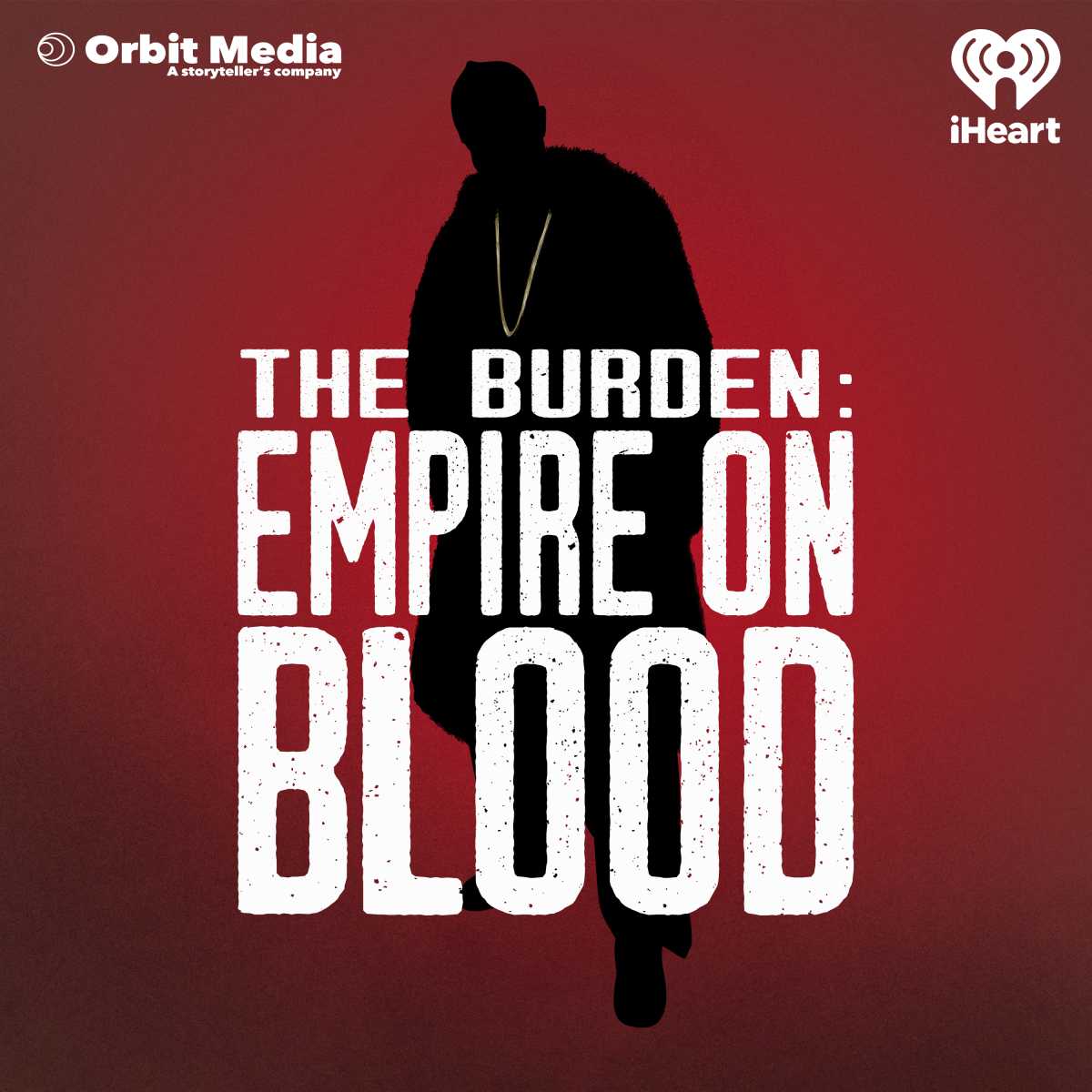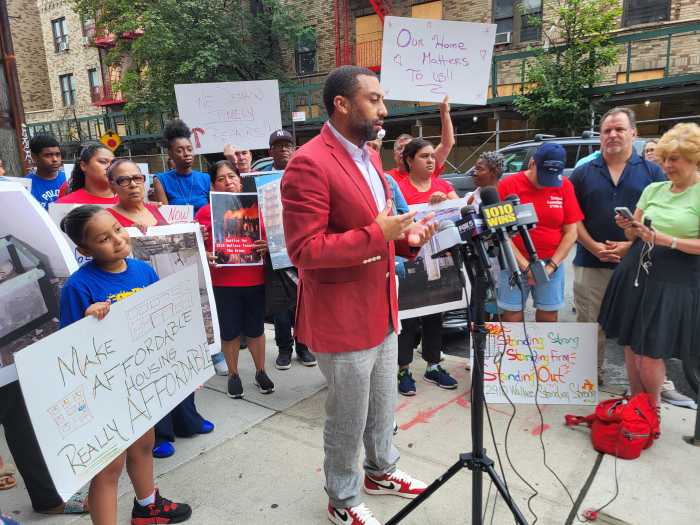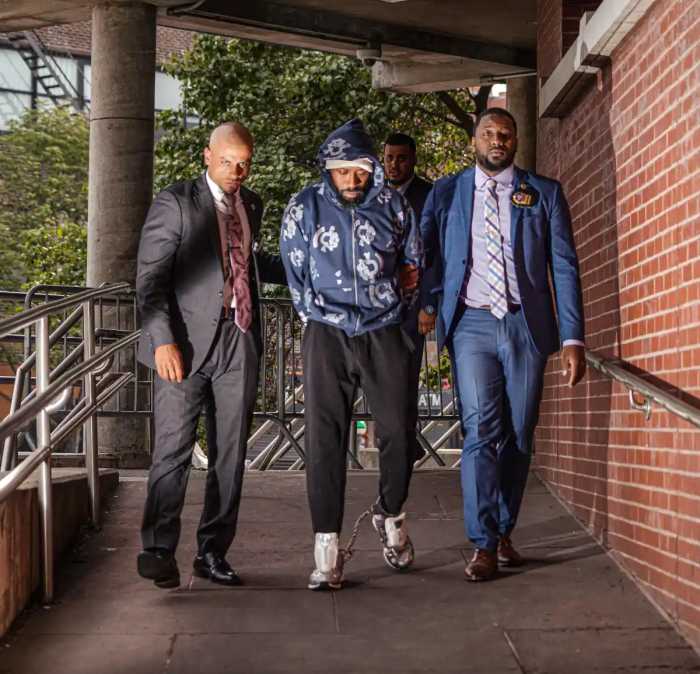If you’re looking for a new podcast to get hooked on — one that takes place in the Bronx, no less — check out “The Burden: Empire on Blood” by journalist Steve Fishman, who goes deep inside the story of a 1992 double homicide in the Wakefield neighborhood.
“This is Law and Order, but it’s real,” said Fishman in an interview with the Bronx Times.
“Empire on Blood” centers on Calvin Buari, a drug dealer who brought crack to the neighborhood in the early 1990s. He was the child of immigrants and a high school dropout who strove to gain money and power.
Buari also had natural business savvy and a gift for “seeing things other people don’t,” as he put it in the first episode. He made hundreds of dollars a day dealing drugs and was flamboyant, wearing mink coats and driving two different BMWs. Buari referred to himself in those days as “young, fresh and flashy.”
One night in 1992, two brothers, Elijah and Salhaddin Harris — who were not known to be connected to drugs— were shot to death in their car. Some of Buari’s fellow dealers said he did it — and he was a glaring target for law enforcement.
“There was a kind of mandate to get him off the streets,” Fishman said.
Buari was convicted of the homicides, and in 1995 was sentenced to 50 years in prison. But another man, Dwight Robinson, who was in prison for an unrelated crime, confessed to the Harris brothers’ murders in 2003 — then recanted in 2004.
In all, Buari served 22 years in prison until new witnesses came forward with information that cast doubt on the conviction. He was released in 2017.
Fishman first started conversations with Buari in 2011, and the original “Empire on Blood” podcast came out seven years later. Now, it has been re-released with never-heard-before tape and extended episodes that weave in even more detail.
It’s a journalist’s privilege to “get inside these stories” — even when such closeness is uncomfortable or complicated, as it was with Buari, said Fishman.
‘Into his world’
Fishman had little in common with his “Empire on Blood” subjects. He is originally from suburban New Jersey, although he has lived in New York City for decades, including in the 1990s.
Fishman, who was mainly a magazine writer, had previously reported on some wrongful convictions and written a feature story for New York Magazine on Bronx Assembly Member Nelson Castro, who resigned from office in 2013 after pleading guilty to perjury charges. But he said he was no expert on the Bronx when Buari’s story fell into his lap.
Fishman told the Bronx Times he built his career on finding in-depth, character-driven stories and “working them from the inside.” He landed difficult interviews, including with convicted Ponzi schemer Bernie Madoff and the Summer of Sam serial killer.
The key to gaining people’s trust was always to “come with warm emotion and real engagement,” said Fishman. Though he said he didn’t always like Buari, he “kind of became a friend and, in a way, invited me into his world,” he said.
One of Buari’s friends gave Fishman 1,000 pages of court transcripts, and he said he was shocked by what he read. He became convinced, at least, that Buari had not received a fair trial — which is not the same as innocence, but certainly worthy of another look.
Fishman was drawn deep into the project and all the characters involved. In the first episode, he said the case was his “obsession” for seven years.
“Corner on Blood”
There was much for Fishman to uncover about Buari, the characters who ratted him out and those who stood up for him, and the context in which they all lived.
In the 1990s, East 213th Street and Bronxwood Avenue — dubbed the “Corner on Blood” — was the site of multiple murders, gang activity and an “open-air drug market,” according to Fishman. Buari himself once survived a gunshot there.
For instance, according to NYPD Comp Stat data, there were 35 murders in the 47th Precinct in 1993 compared to 11 in 2023. There are nearly 70% fewer murders now, and all other categories of major crime (rape, robbery, burglary, grand larceny, grand larceny auto, and felony assault) were dozens of percentage points higher in the 1990s.
The city was “on the verge of being overrun by violent crime,” said Fishman, whose own apartment was broken into four or five times in the 90s. And Rudy Giuliani, a prosecutor elected mayor in 1994, was charged with handling it.
Buari’s drug dealing ruined Bronx neighborhoods; he was not a sympathetic character. But Fishman said he came to view him as “powerless, like a pedestrian crossing a walk with tanks barreling down both ways.”
As Fishman built relationships with Buari and others, he was there to record conversations, phone calls and the story’s biggest moments, including when the judge overturned the conviction and Buari walked out of prison. The sound of the handcuffs clicking open was captured in Fishman’s audio.
For years, he was there for it all. “It took a lot of hour-long rides to that Bronx courthouse,” he said.
‘The story continues’
The whole saga — which plays out over seven hour-long episodes of “Empire on Blood” — isn’t as simple as a wrongful conviction. Fishman said he hopes listeners will form their own views of Buari and others and grapple with dilemmas inherent in our legal system.
Fishman posed several questions affecting Buari’s case that remain in play decades later. “What is the role of the justice system? What if it cheats? What do we think about our quote-unquote ‘good guys’?” And as residents, what is our complicity in electing leaders who do not use power responsibly?
There are no easy answers, but New York City was and has continued to be an “epicenter” on issues of over policing and wrongful conviction, mostly of people of color — even as some community leaders advocate for more policing, said Fishman.
Those tensions show “you can’t really make assumptions,” he said.
Buari’s life has gone on since his release from prison. According to Fishman, he has started a business transporting families to and from prison visits — and, true to style, his fleet has luxury buses.
“The story continues after the podcast,” Fishman said.
Listen to “The Burden: Empire on Blood” on all major podcast platforms, such as Apple Podcasts and Spotify. The first four episodes are out now; hear the trailer here.
Reach Emily Swanson at eswanson@schnepsmedia.com or (646) 717-0015. For more coverage, follow us on Twitter, Facebook and Instagram @bronxtimes



















